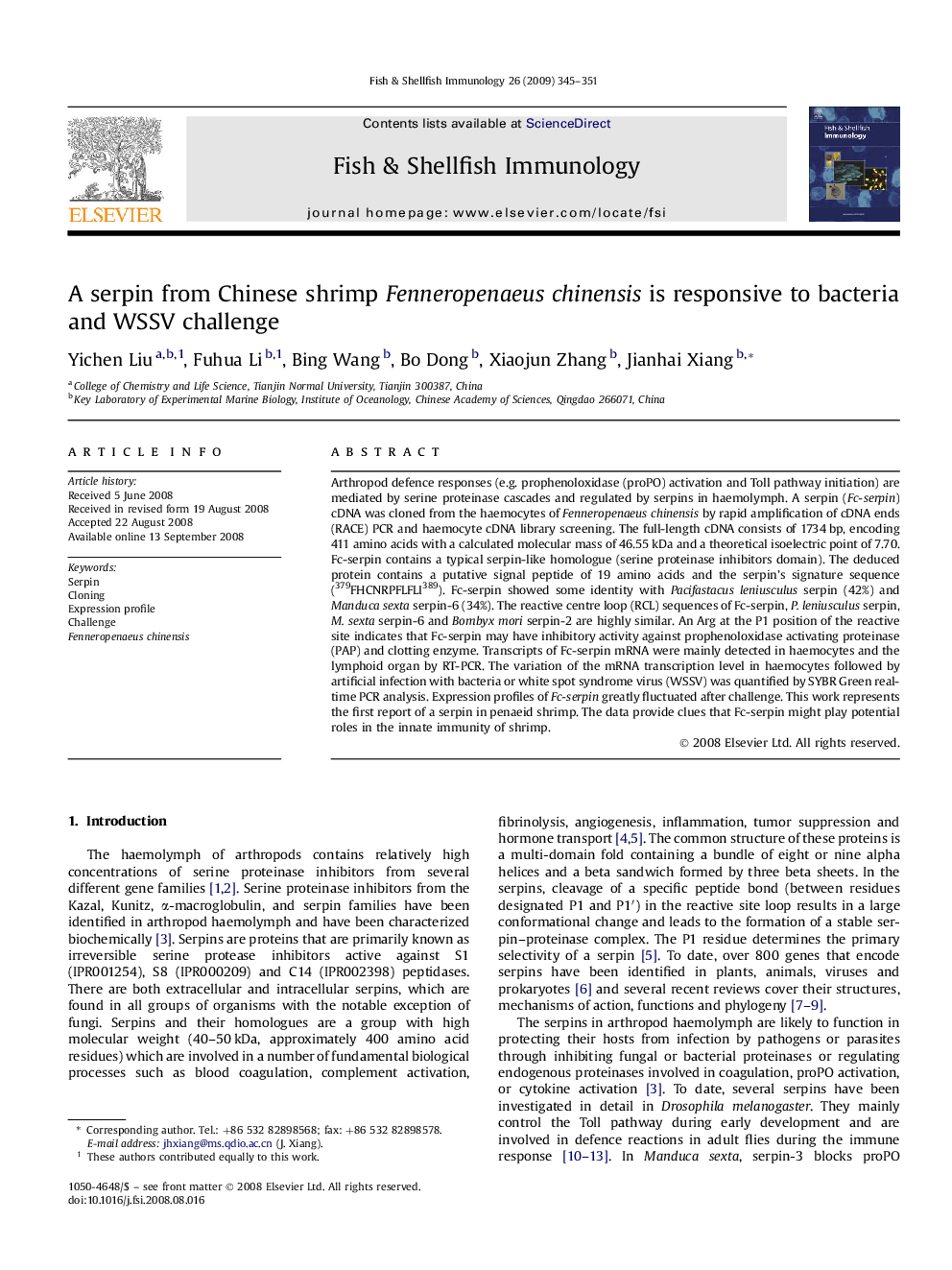| Article ID | Journal | Published Year | Pages | File Type |
|---|---|---|---|---|
| 2432959 | Fish & Shellfish Immunology | 2009 | 7 Pages |
Arthropod defence responses (e.g. prophenoloxidase (proPO) activation and Toll pathway initiation) are mediated by serine proteinase cascades and regulated by serpins in haemolymph. A serpin (Fc-serpin) cDNA was cloned from the haemocytes of Fenneropenaeus chinensis by rapid amplification of cDNA ends (RACE) PCR and haemocyte cDNA library screening. The full-length cDNA consists of 1734 bp, encoding 411 amino acids with a calculated molecular mass of 46.55 kDa and a theoretical isoelectric point of 7.70. Fc-serpin contains a typical serpin-like homologue (serine proteinase inhibitors domain). The deduced protein contains a putative signal peptide of 19 amino acids and the serpin's signature sequence (379FHCNRPFLFLI389). Fc-serpin showed some identity with Pacifastacus leniusculus serpin (42%) and Manduca sexta serpin-6 (34%). The reactive centre loop (RCL) sequences of Fc-serpin, P. leniusculus serpin, M. sexta serpin-6 and Bombyx mori serpin-2 are highly similar. An Arg at the P1 position of the reactive site indicates that Fc-serpin may have inhibitory activity against prophenoloxidase activating proteinase (PAP) and clotting enzyme. Transcripts of Fc-serpin mRNA were mainly detected in haemocytes and the lymphoid organ by RT-PCR. The variation of the mRNA transcription level in haemocytes followed by artificial infection with bacteria or white spot syndrome virus (WSSV) was quantified by SYBR Green real-time PCR analysis. Expression profiles of Fc-serpin greatly fluctuated after challenge. This work represents the first report of a serpin in penaeid shrimp. The data provide clues that Fc-serpin might play potential roles in the innate immunity of shrimp.
